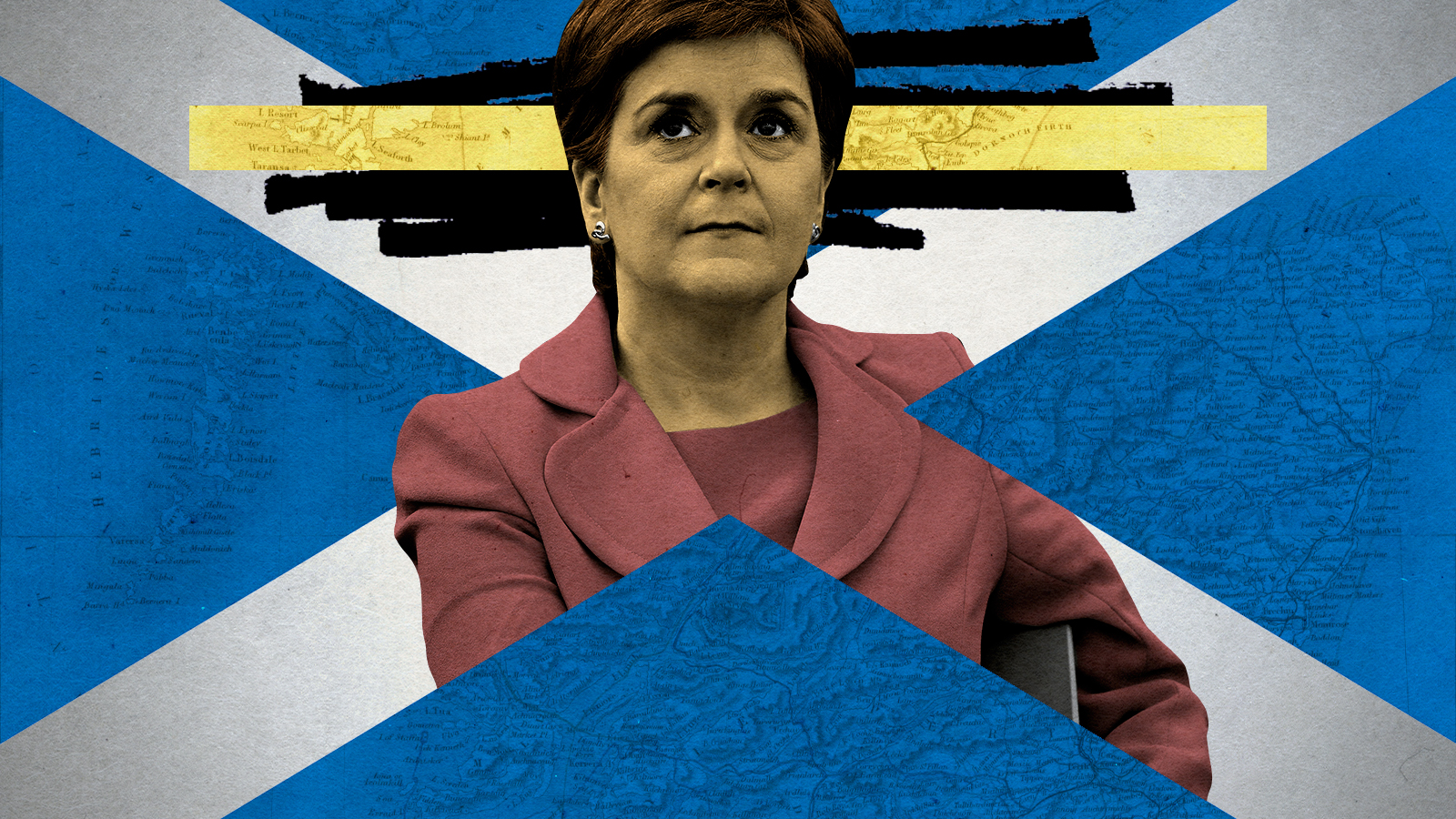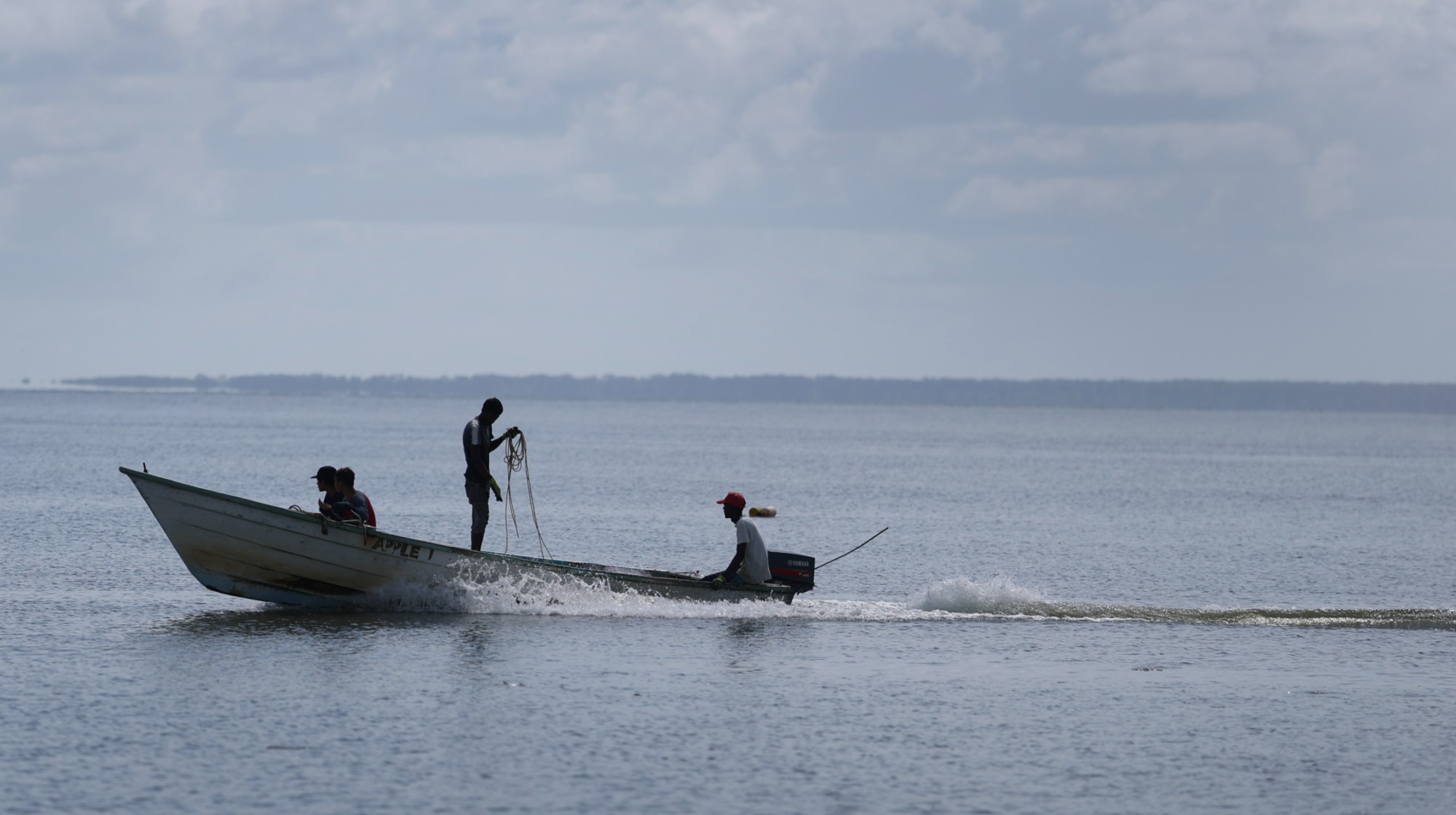The new push for Scottish independence, explained
Why the United Kingdom might not be so united


A free daily email with the biggest news stories of the day – and the best features from TheWeek.com
You are now subscribed
Your newsletter sign-up was successful
Scotland is going to make another bid for its freeeeeeedom. Nicola Sturgeon, the first minister of Scotland, announced on Tuesday that her government wants to hold a nationwide referendum on independence from the United Kingdom. She proposed to hold the vote on Oct. 19, 2023.
There is some legal wrangling to be done between now and then if the vote is to actually take place and be meaningful. The government of Boris Johnson, the British prime minister, must give its permission for the vote to proceed — but "no such consent from Westminster will be forthcoming," Andrew McDonald reports for Politico. Still, Sturgeon plans to press ahead anyway, saying British rule over Scotland "cannot be based on anything other than a consented, voluntary partnership."
Independence would break up a very long-standing relationship: Scotland has been part of Great Britain since 1707. Why part ways now? Here's everything you need to know:
The Week
Escape your echo chamber. Get the facts behind the news, plus analysis from multiple perspectives.

Sign up for The Week's Free Newsletters
From our morning news briefing to a weekly Good News Newsletter, get the best of The Week delivered directly to your inbox.
From our morning news briefing to a weekly Good News Newsletter, get the best of The Week delivered directly to your inbox.
Wait. Haven't the Scots voted down independence before?
Yes. In 2014, Scots were asked to vote on a separation from the United Kingdom — and the proposal failed by a 55-45 percent margin. That was supposedly a "once in a generation" chance at independence, but the independence-seeking Scottish National Party has spent the years since then lining up the "support for a rerun," says NPR's Willem Marx.
Earlier this month, Sturgeon released the first in a series of policy papers making the case that an independent Scotland would be "wealthier, happier, fairer." Breaking away from the U.K. would give "crucial decision-making power" to "the people who live here" — and not London-based officials who "pursue policies, for example, Brexit, that are deeply damaging to Scotland's interests." She suggests that "other countries in northwest Europe, regardless of size, frequently out-perform the U.K. across a range of key measures that determine well-being" and concludes that "if the status quo is not working, we should ask how best to fix it." Her answer, obviously, is independence.
Why might this time be different than 2014?
Brexit. Two years after Scottish voters decided to stay in the United Kingdom, the kingdom's voters decided to leave the European Union. Scotland, however, voted to remain. Why? Because the EU had spent recent decades funding improvements in Scotland — part of an effort to help the union's poorer regions catch up with the richer countries — while at the same time the United Kingdom "devolved" some of its powers back to constituent countries. "The twin factors of the EU's greater role in Scotland and the devolution of powers to Edinburgh have helped bolster Scottish nationalism," Elliot Ross wrote for The Atlantic in 2019. "The most resonant phrase in Scottish politics right now, repeated everywhere, is that Brexit will see Scotland dragged out of Europe against our will."
The COVID-19 pandemic has also played a role. Much like former New York Gov. Andrew Cuomo in the United States, Sturgeon held regular press briefings that were popular among the public, and support for independence began to rise. Johnson's own self-inflicted troubles stemming from the pandemic — the scandal known as "Partygate" — have also given Sturgeon a pathway to the referendum: A January poll by The Scotsman found that more than half of respondents thought the affair had hurt the case for remaining in the Union.
A free daily email with the biggest news stories of the day – and the best features from TheWeek.com
But polls also suggest the latest independent effort might be dicey: An Ipsos poll in May gave a slight majority — 51 percent — to voters who want to stay in the U.K.
What's next?
Sturgeon's first act will be to try to bypass Johnson's government. She has "asked Scotland's senior law officer the Lord Advocate to go to the U.K. Supreme Court to get a ruling on whether the Scottish Parliament alone has the power to hold a legal consultative referendum," David Mac Dougal reports for Euro News. If that doesn't work out, then Sturgeon plans to take the issue directly to U.K. voters, and "her party will fight the next U.K. general election on the sole question of independence." Even if the referendum is successful, that doesn't mean independence is automatic. "Legislation would have to be passed by both the U.K. and Scottish parliaments to give effect to the decision," John-Paul Ford Rojas reports for Sky News.
However, there are still a number of Scots who want to remain in the United Kingdom. "Johnson's Conservatives, the largest opposition party in the Scottish Parliament, have said they would boycott any referendum that was called unilaterally," Rodney Jefferson writes for Bloomberg. They'll make the case that instead of spending time and effort on independence, "Sturgeon should be focusing on improving the health service and education."
Either way, it's certain to be the topic of fierce debate for a year or more. The results could be historic, as Sturgeon acknowledged Tuesday. "Now is the time, at this critical moment in history, to debate and decide the future of our country."
Joel Mathis is a writer with 30 years of newspaper and online journalism experience. His work also regularly appears in National Geographic and The Kansas City Star. His awards include best online commentary at the Online News Association and (twice) at the City and Regional Magazine Association.
-
 Political cartoons for February 19
Political cartoons for February 19Cartoons Thursday’s political cartoons include a suspicious package, a piece of the cake, and more
-
 The Gallivant: style and charm steps from Camber Sands
The Gallivant: style and charm steps from Camber SandsThe Week Recommends Nestled behind the dunes, this luxury hotel is a great place to hunker down and get cosy
-
 The President’s Cake: ‘sweet tragedy’ about a little girl on a baking mission in Iraq
The President’s Cake: ‘sweet tragedy’ about a little girl on a baking mission in IraqThe Week Recommends Charming debut from Hasan Hadi is filled with ‘vivid characters’
-
 Local elections 2026: where are they and who is expected to win?
Local elections 2026: where are they and who is expected to win?The Explainer Labour is braced for heavy losses and U-turn on postponing some council elections hasn’t helped the party’s prospects
-
 How ‘Manchesterism’ could change the UK
How ‘Manchesterism’ could change the UKThe Explainer The idea involves shifting a centralized government to more local powers
-
 What is at stake for Starmer in China?
What is at stake for Starmer in China?Today’s Big Question The British PM will have to ‘play it tough’ to achieve ‘substantive’ outcomes, while China looks to draw Britain away from US influence
-
 The billionaires’ wealth tax: a catastrophe for California?
The billionaires’ wealth tax: a catastrophe for California?Talking Point Peter Thiel and Larry Page preparing to change state residency
-
 Bari Weiss’ ‘60 Minutes’ scandal is about more than one report
Bari Weiss’ ‘60 Minutes’ scandal is about more than one reportIN THE SPOTLIGHT By blocking an approved segment on a controversial prison holding US deportees in El Salvador, the editor-in-chief of CBS News has become the main story
-
 UK, Colombia halt intel to US over boat attacks
UK, Colombia halt intel to US over boat attacksSpeed Read Both countries have suspended intelligence sharing with the US over the bombing of civilian boats suspected of drug smuggling
-
 Has Zohran Mamdani shown the Democrats how to win again?
Has Zohran Mamdani shown the Democrats how to win again?Today’s Big Question New York City mayoral election touted as victory for left-wing populists but moderate centrist wins elsewhere present more complex path for Democratic Party
-
 Millions turn out for anti-Trump ‘No Kings’ rallies
Millions turn out for anti-Trump ‘No Kings’ ralliesSpeed Read An estimated 7 million people participated, 2 million more than at the first ‘No Kings’ protest in June
